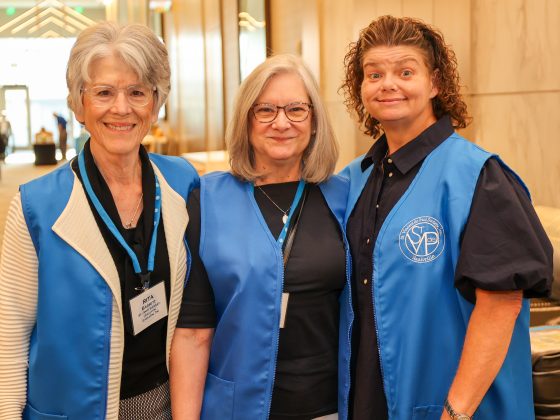Writing to his friend Auguste Materne, a 17-year-old Frédéric Ozanam tried to sum up his good points and his bad points. The bad side he reduced to “four predominant faults: pride, impatience, weakness, and an extreme meticulousness” which he went on to explain in more detail, then closed with an odd self-assessment: “Add to these faults that of despising the neighbor a little too easily and you have my bad side.” [Letter 12, to Materne, 1830] Less than three years before founding the Society of Saint Vincent de Paul, whose members are dedicated to loving and serving our neighbors, this man, this role model of holiness, admitted to “despising the neighbor a little too easily”?
The younger Frédéric recognized his own pride and impatience, which sometimes led him to intolerance. He concluded that he thought he “could become either a very wicked or a very virtuous man.” Ozanam’s frankness may be a reminder that each of us has a saint within us, struggling to be set free from our human weaknesses, whatever they may be, and in order to achieve the holiness we seek, we all need help. As our Rule puts it, “Vincentians are aware of their own brokenness and need for God’s grace.” [Rule, Part I, 2.2]
Frédéric, whose beatification attests to the holiness he ultimately attained, found the grace to go beyond his own brokenness in the very place that we may find it, too – in the Society he founded for this very purpose. Indeed, only nine years after delineating his own weaknesses, he would write to Father Lacordaire, saying “I greatly fear to lose in useless efforts time I could more modestly and surely employ for my salvation and the service of the neighbor.” [Letter 211, to Lacordaire, 1839] His impatience had reversed itself, and he now urgently sought to serve the neighbor.
Each of us, Frédéric wrote, “carries within his heart a seed of sanctity”. [Letter 137, to Janmot, 1837] It is in the poor that we see God, and are able to serve Him and thus grow closer to Him; to nurture that seed. This is both the lesson of Frédéric’s life, and the example he leaves for us; an example of holiness attained, but more importantly, an example of growth in holiness.
Beyond even that, Frédéric shows us how to grow in holiness together, asking his fellow Vincentians to “not allow yourselves to be stopped by those who will say to you, ‘He is in Heaven.’ Pray always for him who loves you dearly, for him who has greatly sinned. If I am assured of these prayers, I quit this earth with less fear.” [Baunard, 386] In return, Léonce Curnier would say after his lifelong friend’s death that “I never think of Frédéric without an inclination to invoke his assistance… I seem to see him in Heaven between St. Vincent de Paul and St. Francis de Sales, whose faithful disciple he was.” [Ibid, 406]
May we continue to serve Christ, and to pray for each other’s salvation. Pray for us Blessed Frédéric!
Contemplate
Do I always pray for my fellow Vincentians, living and dead, and ask also for their prayers?




It’s comforting to learn that Blessed Ozanam experienced himself as impatient …… I’ll pray to him for guidance.